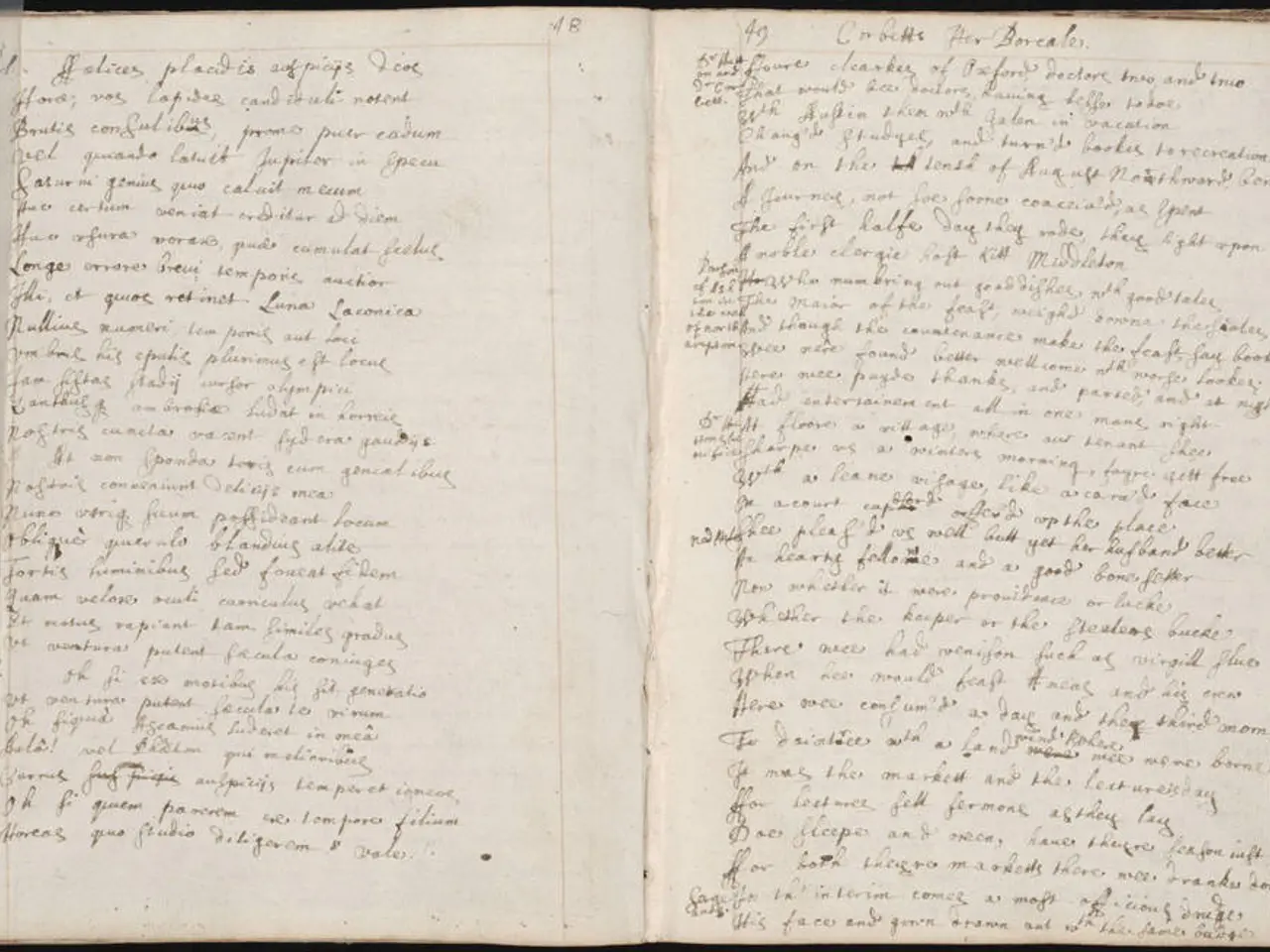"The Burden of Existence Unveiled: An Endless Debate of Lighter and Heavier Aspects"
Milan Kundera's acclaimed novel, The Unbearable Lightness of Being, delves into the philosophical exploration of the concepts of lightness and heaviness as existential conditions that define human experience. The narrative, set against the backdrop of the Prague spring of 1968 and the subsequent Soviet occupation, presents these concepts as a dialectic, questioning whether life's singularity implies a fleeting, weightless existence or a weight of responsibility and significance.
In the novel, lightness represents freedom, chance, and the absence of burden, embodied by characters like Tomas, who treats life as a series of unbound coincidences without deep attachments. Conversely, heaviness signifies fate, meaning, and moral weight, reflected in Tereza's struggles and conviction that choices matter because they bear weight on one's existence and identity. Kundera contrasts these attitudes:
- The heaviness is the burden tied to eternal recurrence—the idea that every choice is endlessly repeated and thus gains tremendous significance, which can be experienced as either a profound burden or affirmation.
- The lightness arises if life happens only once, making each moment ephemeral and, paradoxically, insignificant or free, which Kundera terms the unbearable lightness of being.
Kundera's conclusion critiques both extremes. Neither the affirmation of eternal recurrence nor the pure lightness free of consequences fully satisfies human longing, because both bring forms of existential dissatisfaction. The novel meditates on how the irreversibility of our choices and the fleeting nature of life produce a complex interplay between lightness and heaviness, freedom and responsibility, presence and absence of meaning.
A key passage Kundera quotes sums this:
"The heavier the burden, the closer our lives come to the earth, the more real and truthful they become. Conversely, the absolute absence of burden causes man to be lighter than air... and become only half real... What then shall we choose? Weight or lightness?"
Thus, the philosophical exploration in Kundera's novel sees lightness and heaviness not simply as metaphors but as existential categories that shape how humans confront the meaning of their being in a transient, one-time life. Characters in the novel, such as Tomas, Tereza, and even the symbolic character Karenin (a dog representing unwavering loyalty and peace), are portrayed as diverse strategies of the human soul, each with their own complexities and struggles. The novel's setting, the tumultuous political climate of Prague, serves as a force that permeates the characters' lives, further complicating their search for meaning and balance between lightness and heaviness.
The novel's exploration of lightness and heaviness also encompasses various aspects of human life beyond the existential. For instance, Tomas' approach to sports leans towards lightness, embracing the unpredictable nature of the game, while Tereza's choice of books often reflects her search for meaning and weightiness. Additionally, the world of entertainment offers an escape from the burdens of life, providing moments of fleeting lightness, yet Tereza also finds solace in traveling, viewing it as a means to connect with the world heavily, bridging the gap between herself and others.







